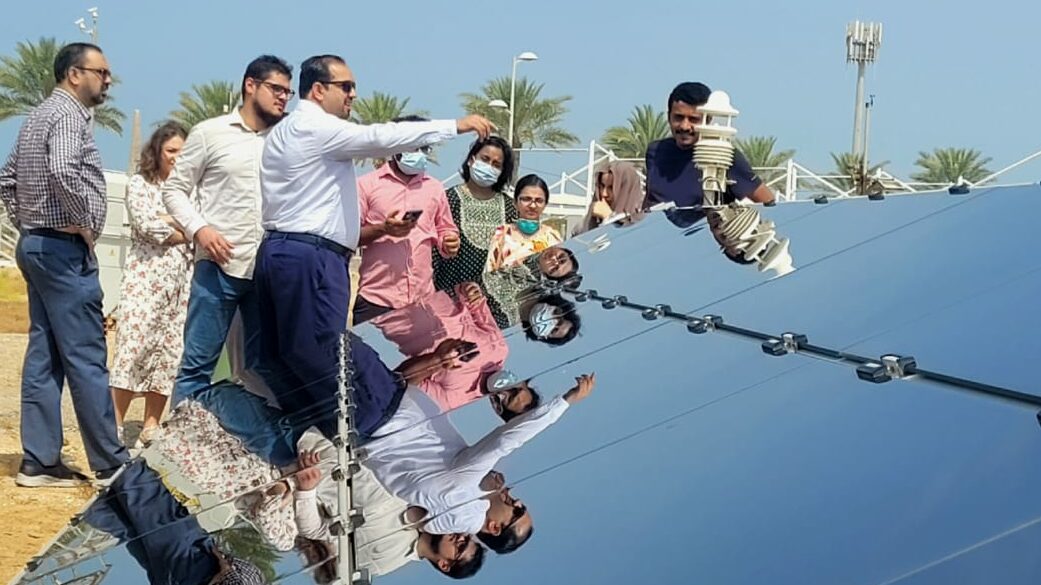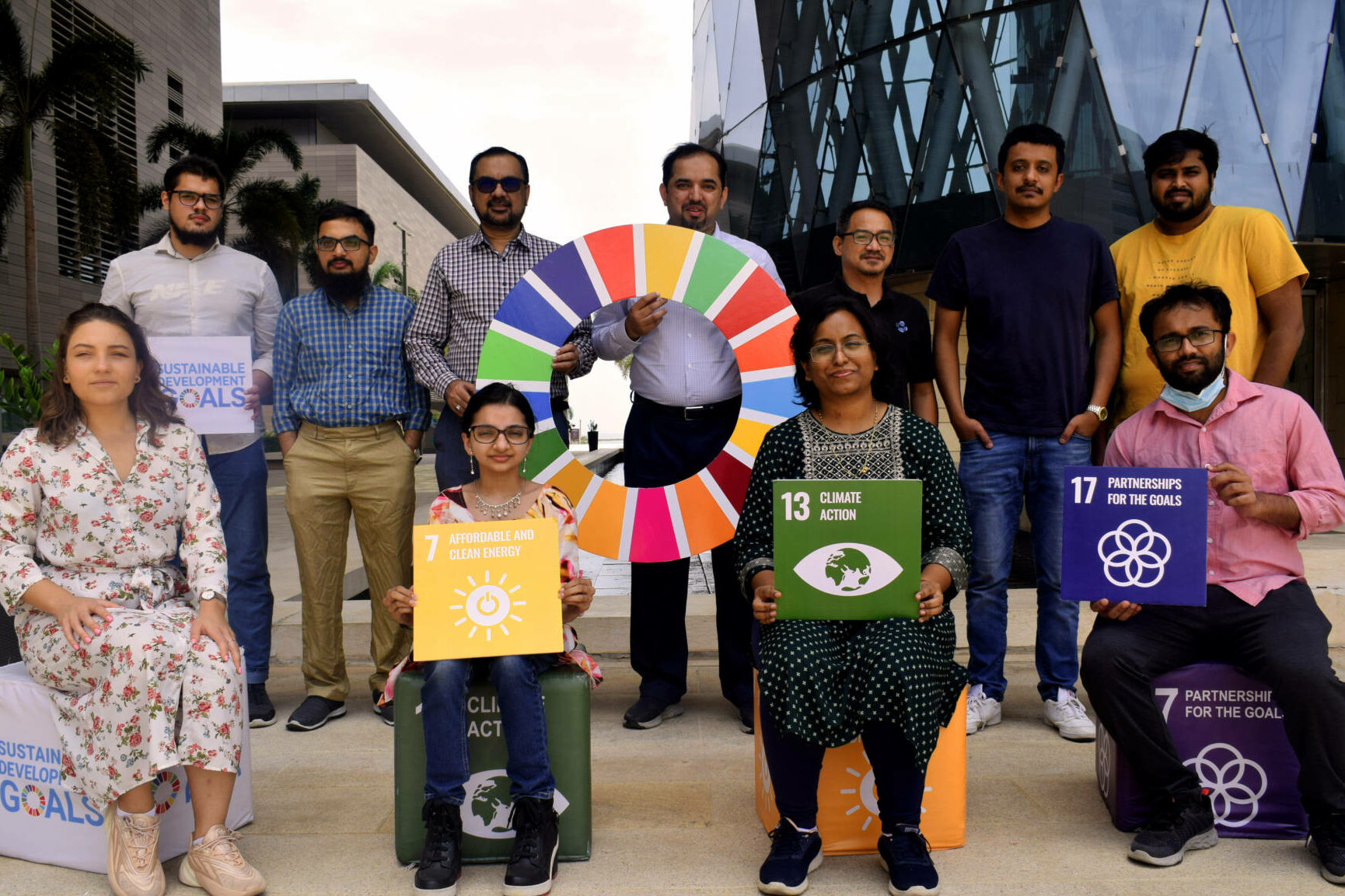An accredited photovoltaic design school has been developed through a partnership between the KAUST Solar Center and Saudi Electric Services Polytechnic, with support from the team at KAUST Innovation.
Saudi Arabia’s Vision 2030 presents a pathway toward a sustainable future for the country, with a plan to reach net zero by 2060. This also fits with the UN Sustainable Development Goal for affordable and clean energy.
While solar radiation is in plentiful supply in Saudi Arabia, much interdisciplinary research, training and innovation are still needed for its large-scale implementation. A highly skilled and trained workforce will also be key to developing the necessary techno-economic environment.
As a way to achieve this objective, KAUST Solar Center is collaborating with Saudi Electric Services Polytechnic — a leading vocational and professional training body — to establish a new accredited photovoltaic design school at KAUST.

“Vision 2030 promotes green and renewable energy and diversification of the Saudi economy from oil. What better way to participate in this collective effort than by providing young professionals working in the country with the right skillsets?” says Marios Neophytou, partnership specialist at the KAUST Solar Center, who helps organize the photovoltaic design schools.
“What better way to participate in this collective effort than by providing young professionals working in the country with the right skillsets?”
The goal of the Design School is to train early-career engineers employed across industry and government to qualify them to work as photovoltaic designers in the country’s industrial photovoltaic sector. “We need people who can understand the modeling, design, optimization and also can analyze the performance of solar-based power plants based on new photovoltaic technologies,” says Neophytou.
Saudi Electric Services Polytechnic’s training expertise, combined with KAUST Solar Center’s cutting-edge research and technology development portfolio, has proved hugely popular. The design school is now being run several times a year to equip more Saudi engineers to work on designing photovoltaic systems.

The five-day course, first delivered in October 2021, includes classroom lectures combined with hands-on training, site visits and lab tours. So far, six sessions have been run with more than 100 engineers trained.
The initiative has brought together individuals from diverse professional backgrounds, including those trained in electrical, computer, chemical and civil engineering, material scientists, physicists and petroleum engineers from diverse companies and government bodies across the Kingdom.
The design school focuses primarily on grid-direct photovoltaic systems, the largest and fastest growing segment of the market, and also includes material critical to understanding local standards and regulations.
The course was designed to create a fundamental understanding of concepts such as system components, wiring, site analysis and mounting solutions as well as safety and commissioning according to Saudi regulations.
Students are trained in activities such as performing power and energy calculations and load analysis for grid-direct systems. They obtain hands-on experience in wiring and connecting solar panels, checking for defects and deteriorating performance and how to mount and design a solar park to avoid shadowing effects. Assessment is provided through daily practical exercises.
The theory and practical sessions are interspersed with on-site and lab visits — including to the KAUST Solar Center’s lab facilities and KAUST central laboratories and Innovation Hub — where trainees observe and operate state-of-the-art equipment. They also visit KAUST’s New Energy Oasis, where researchers are testing various photovoltaic technologies in real-world outdoor conditions.
Feedback from trainees after the course included the following: “Excellent training…and a very interactive learning experience. I have now obtained my certificate and am starting my own company…” “The course was excellent for its structure encompassing the practical aspects of photovoltaic design… The classroom combined with practical visits brought clarity to the topics discussed. Even for advanced learners, the course highlighted the real-world challenges in the field.” “…helped me realize and close the knowledge gap from lab to real-world applications of photovoltaics.”
“Excellent training…and a very interactive learning experience. I have now obtained my certificate and am starting my own company…”
“Through the already established photovoltaic design school, and the soon-to-be-launched photovoltaic installation training, the KAUST Solar Center is playing a significant role in helping to develop the multidisciplinary workforce needed to achieve the sustainability aspirations of Vision 2030,” says Frédéric Laquai, also from KAUST Solar Center and an expert in photovoltaic research.

